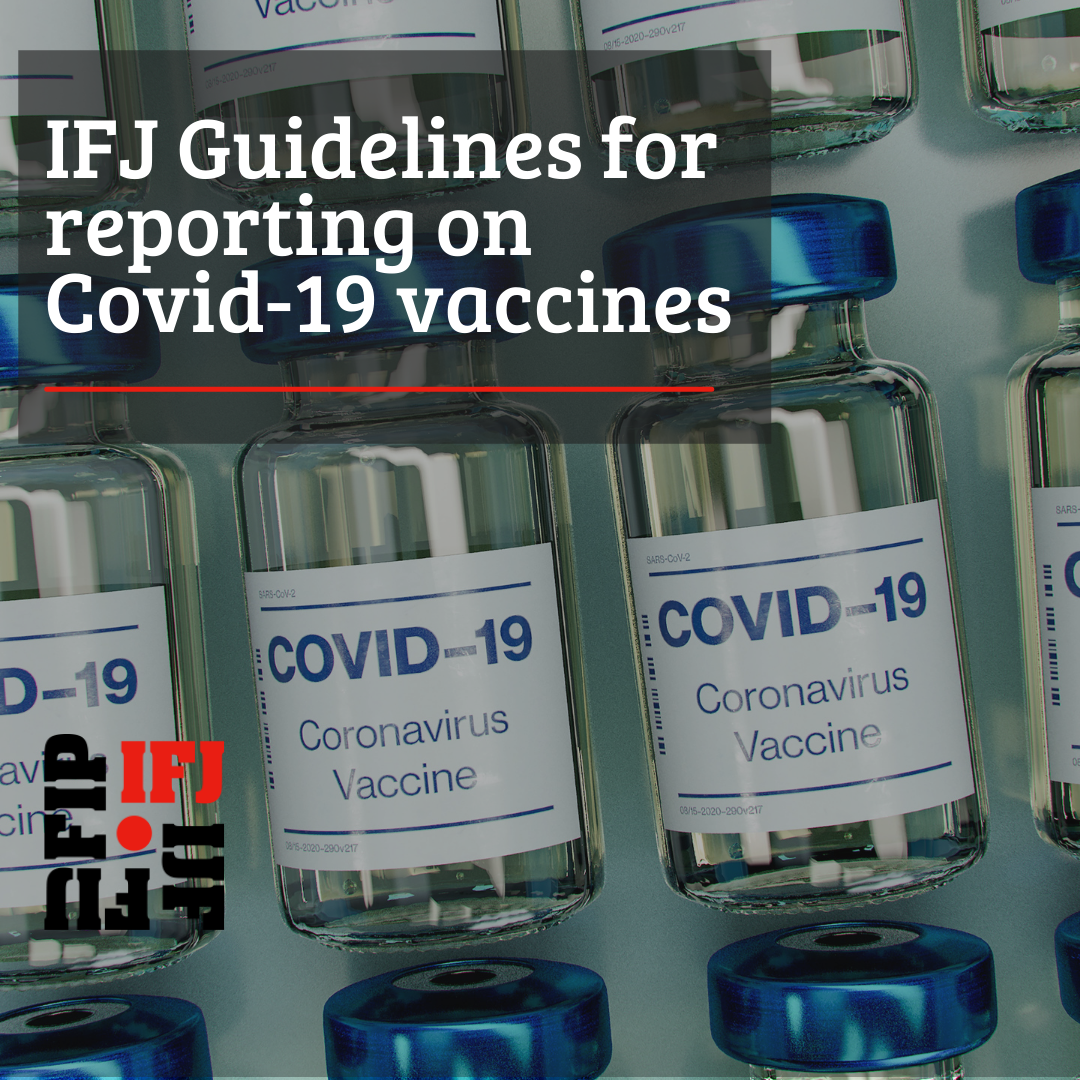PODGORICA, 28.01.2021. – The International Federation of Journalists (IFJ) believes that now, more than ever, journalists are making a huge effort to explain the global and local context of the vaccines while scrutinizing pharmaceutical companies and demanding transparency of the government’s vaccination policies and programs. And many of them are doing it without prior expertise or guidance on health reporting.
To help journalists face this challenge ahead of them, the IFJ is publishing a set of guidelines, tips and resources to help improve media coverage on vaccines and the vaccination strategies.
Don’t trust data automatically
Authorities and pharmaceutical companies may be tempted to release attractive and impactful data. Journalists must always request the raw data where possible, include the details of the research and clarify what the news means and what it does not. Avoid simply relying on company or government press releases.
For example, when reporting on a paper or a pharmaceutical study, journalists must look carefully into the data, such as the age of the participants in the study and specify the size, numbers tested, and time period of the trial.
Use trusted and reliable sources
Accessing the correct sources is essential. The World Health Organisation or the European Medicines Agency or academic institutions and universities are some of sources recommended by experienced health journalists -see the list below-. Always follow the principles of the IFJ Global Charter of Ethics for Journalists.
Understand what’s known and what is not about vaccines
The process of developing a vaccine is long and complex and doesn’t end with its approval. Journalists must follow the ongoing studies and consult vaccine experts to understand the implications of potential new findings such as the immunity durability of vaccines, its effectiveness, possible secondary effects, if a vaccinated person can still spread the virus or not or if they will work if the virus mutates.
Explain in detail scientific vocabulary
What does it mean that a vaccine has 95% efficacy? Is efficacy the same as effectiveness? What does immunity mean? From when do we start having it? What does it mean to achieve herd immunity?
According to health experts, these are some of the questions journalists have to understand and be able to clearly communicate to their audience. Using clear and familiar language will also help your audience to understand the information you are conveying. Check the WHO vocabulary glossary to fully understand the concepts you will need to explain in your coverage.
From global to local
Understanding and explaining how the global process of the vaccines, the scientific research and its approval from the authorities is to be applied is essential; but so too is to explain it from a local perspective. Local audiences trust local news the most, and local journalists will play a critical role in informing the public on vaccination sites, eligibility criteria and other practical information.
Avoid sensationalism and click baiting
Journalists must inform the public truthfully about the potential side effects they may feel after vaccination without falling into sensationalism or creating unjustified alarm, especially in headlines. Clearly explaining the possible side effects of any given vaccine will educate the public and ease their reservations.
Educate on the importance of vaccines
Vaccines have saved millions of lives throughout human history and so will the Covid-19 ones. Journalists can tackle misinformation about vaccines by reporting on facts and figureson vaccine efficacy and the importance they have had in ending pandemics in history. Understanding and clearly explaining the possible side-effects of vaccines is critical in places where mistrust over vaccines is higher.
Collaborate!
This is the most important tip of all. Collaborate with other journalists and media outlets and learn from other health journalists’ coverage around the world. Competition among journalists will only speed up the spread of misinformation as the fight to publish the fastest breaking news is more likely to lead to inaccurate and sensationalist coverage.








